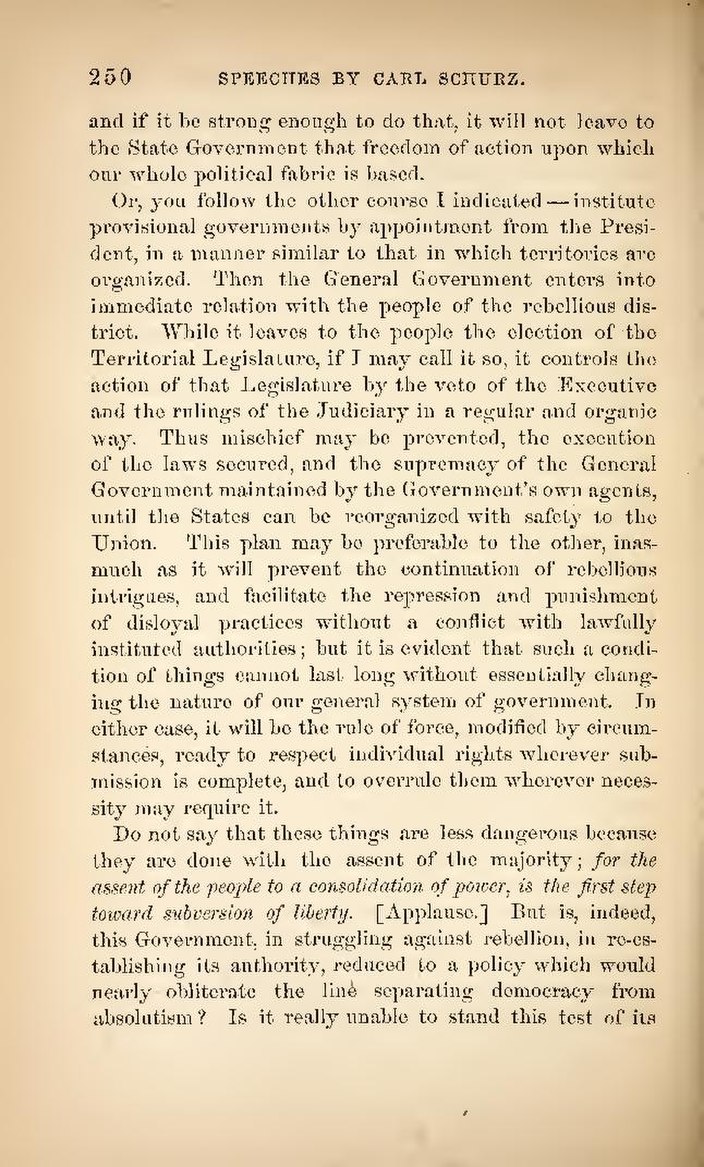and if it be strong enough to do that, it will not leave to the State Government that freedom of action upon which our whole political fabric is based.
Or, you follow the other course I indicated—institute provisional governments by appointment from the President, in a manner similar to that in which territories are organized. Then the General Government enters into immediate relation with the people of the rebellious district. While it leaves to the people the election of the Territorial Legislature, if I may call it so, it controls the action of that Legislature by the veto of the Executive and the rulings of the Judiciary in a regular and organic way. Thus mischief may be prevented, the execution of the laws secured, and the supremacy of the General Government maintained by the Government's own agents, until the States can be reorganized with safety to the Union. This plan may be preferable to the other, inasmuch as it will prevent the continuation of rebellious intrigues, and facilitate the repression and punishment of disloyal practices without a conflict with lawfully instituted authorities; but it is evident that such a condition of things cannot last long without essentially changing the nature of our general system of government. In either case, it will be the rule of force, modified by circumstances, ready to respect individual rights wherever submission is complete, and to overrule them wherever necessity may require it.
Do not say that these things are less dangerous because they are done with the assent of the majority; for the assent of the people to a consolidation of power, is the first step toward subversion of liberty. [Applause.] But is, indeed, this Government, in struggling against rebellion, in re-establishing its authority, reduced to a policy which would nearly obliterate the line separating democracy from absolutism? Is it really unable to stand this test of its
